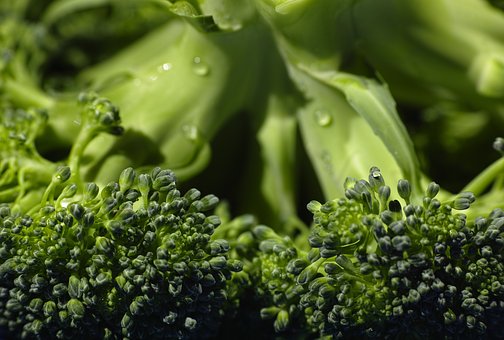Cancer Fighting 'Super Broccoli' on Sale in UK
© HealthyMuslim. See Terms and Conditions

A heart disease and cancer-fighting "superbroccoli" developed by British scientists goes on sale in the UK today.
The vegetable looks the same as normal broccoli but contains boosted levels of glucoraphanin, which may protect the body against heart disease and some types of cancer.
The new broccoli, called Beneforte, contains two to three times more glucoraphanin than standard broccoli. It will be sold at Marks & Spencer stores from and make an appearance on the shelves of other supermarkets next year.
Beneforte was developed by British scientists using conventional breeding techniques rather than genetic engineering. Work on the project began after a wild broccoli variety was discovered in 1983 with naturally raised levels of glucoraphanin.
The nutrient is converted in the gut into the bioactive compound sulphoraphane, which circulates in the bloodstream.
Evidence indicates that sulphoraphane has beneficial effects such as reducing chronic inflammation, stopping uncontrolled cell division associated with early-stage cancer, and boosting the body's antioxidants.
Compared with normal broccoli, eating Beneforte broccoli raises sulphoraphane levels two to four times.
Broccoli is believed to protect against some cancers, especially bowel and prostate. Studies have shown that men with broccoli-rich diets have a reduced risk of aggressive prostate cancer.
Other research suggests broccoli can help prevent heart attacks and strokes by reducing inflammation and keeping blood flowing freely through arteries.Beneforte broccoli was developed at the Institute of Food Research (IFR) and John Innes Centre, both based in Norwich.
Professor Richard Mithen, from the IFR, said: "Our research has given new insights into the role of broccoli and other similar vegetables in promoting health, and has shown how this understanding can lead to the development of potentially more nutritious varieties of our familiar vegetables.
"Now there will also be something brand new for consumers to eat as a result of the discoveries we have made."
The science minister, David Willetts, praised the "fantastic achievement" of the scientists.
He added: "This excellent work has led to the development of a highly commercial food product that will be both grown and sold in the UK, giving a real boost to agriculture, our personal health and the economy."
Link to this article: Show: HTML Link • Full Link • Short Link
Share or Bookmark this page: You will need to have an account with the selected service in order to post links or bookmark this page.





|
Related Articles:
- Cancer-fighting Benefits of Combining Broccoli and Tomato
- Cancer Said To Be No. 1 Killer by 2010
- Disease-Fighting Properties of Green Tea
- Regular Exercise 'Prevents Breast Cancer'
- Caution on Triclosan - An Anti-Bacterial In Soaps, Toothpastes, Deodorants And Cosmetics
- Five Superfoods You Should Be Eating Everyday
- Green Tea, Blueberry and Raspberry Fruit Extracts Touted as Potential Cancer Fighters
- Artificial Sweetener Aspartame Is Carcinogenic
- Mobile Phone Use 'Raises Children's Risk of Brain Cancer Fivefold'
- Dr Linus Pauling, Vitamin C Infusions and Cancer
You must be registered and logged in to comment.
Most Popular
Latest Articles
Popular Subjects
Health, fitness and longevity
Based upon the principles of health
in the Qur'an and Prophetic Traditions.
HealthyMuslim.Com
There are two bounties in which
most people lose out: good health
and free time. Al-Bukhari.























